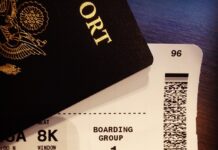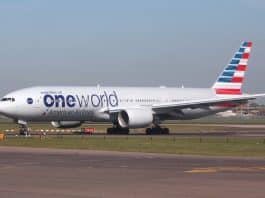With the arrival of two new airlines in Saudi Arabia, notably Riyadh Air, we are moving towards a fragmented and specialized airline landscape by type of customer in the largest country in the Middle East.
Abundance of good does not harm? The future will tell, but let’s see how we got here.
At the beginning was Saudia….
Since 1945 Saudia has been the national airline of the Kingdom of Saudi Arabia. Today, although it has modernized and operates a fleet of 144 aircrafts, it has not succeeded, by far, in overshadowing its two neighbors, Emirates and Qatar Airways.
Not that the service isn’t up to par, we have already had the opportunity to test itbut because not only the airline does not have the critical size to really weigh in this soft power battle which aims at placing a country at the center of the world by making it a major air hub but moreover it strictly applies the principles of Islam (no alcohol, recitation of verses from the Koran before take-off, censored films…) which discourages international customers.
In addition, if the airline operates from the two main airports of the country, Jeddah and Riyadh its main base is located in the first one. Logical since it is a major holy place and, let’s remember, the airline is very much linked (if not tied…) to the role the country and the city play in the Muslim community.
Then came Riyadh Air
It was an open secret for a long time: Saudi Arabia was planning to launch a second national airline. Code name RIA. It was finally made official last week.
The airline will be called Riyadh Air and will be based, as its name suggests, in Riyadh, the capital of the country, and it aims to serve no less than 100 destinations in the world by 2030. At its head is a familiar face as it is Tony Douglas, the former CEO of Etihad who has partially succeeded in cleaning up the situation of the Abu Dhabi airline and enjoys an excellent knowledge of the business world in the region.
At the time of the announcement the airline had neither planes, nor pilots, nor even an airport capable of supporting its ambition since the Mega Airport project in Riyadh will not see the light of day before 2030 for its first phase. A date in line with the airline’s ambition.
At the time of writing, a first order of aircrafts has been placed (see below) and as far as pilots are concerned, we know that recruitment procedures have been actively undertaken for several months with personnel from competing airlines.
We should soon see more clearly on all these issues because, not surprisingly, everything tends to confirm that money is not an issue in this case.
Jazeera Airways enters Saudi Arabia
It is in this context that the announcement of the arrival of Jazeera Airways in Saudi Arabia went a little unnoticed. It is a Kuwaiti low cost airline based in Kuwait City.
It was announced that it was in negotiations with government authorities to open a subsidiary based in Damman, a fast-growing city that is primarily concerned by the Vision 2030 program, which aims to develop leisure destinations in the Kingdom in order to prepare for the post-oil economy.
A priori this announcement has nothing to do with the first two, already because it is a foreign airline and not a national one.
But given the location of the base, the alignment with Vision 2030, the fact that the government is logically very involved and that the opening of this subsidiary is done with Saudi partners logically suggests that it is an element of a global plan, an element that will have to be articulated with the others.
Death of Saudia or creation of a duopoly in Saudi Arabia?
So there will be two national airlines in Saudi Arabia, which seems to go against all logic. So much so that many thought that the logic was that Saudia, which was struggling to break a kind of glass ceiling, would eventually disappear and that its aircraft would be transferred to Riyadh Air.
Maybe it will happen one day, but this is not the direction things are going in the medium term. Indeed it was not necessary to wait 48 hours after the announcement of the creation of Riyadh Air for Boeing to announce an order of 121 aircrafts placed by the two Saudi airlines. This is good news for the U.S. aircraft manufacturer, after the 200-aircrafts order placed earlier by Air India, even if it was accompanied by another order for 250 aircrafts from Airbus.
To be more precise, this order breaks down as follows: 39 B787 for each airline, with 33 options for Riyadh Air and 10 for Saudia.
Figures that provide an answer and raise a question.
The answer is that the arrival of Riyadh Air does not mean the death of Saudia.
The question is that it is not with 39 or 72 aircraft that Ryadh Air will achieve its objectives. What should we expect then? A new order? The eventual absorption of Saudia by its little sister?
To date, it is the second option that seems to be the most credible, especially since, as counter-intuitive as it may seem, Saudi Arabia needs to have two separate airlines (and it also needs the contribution of a low cost airline like Jazeera Airways to boost its market, but that’s not the main topic today).
Saudi Arabia needs two major airlines
If Saudia’s ambition was always to reach the level of the “ME3”, the “Middle East 3”, i.e. Emirates, Etihad and Qatar Airways, it was clear that it was not moving in that direction and was coming up against what looked like a glass ceiling
The reasons? An undersized airport in Riyadh? This does not explain everything, especially since the airline also and especially relies on Jeddah and could do much better with these two hubs. Turkish Airlines has done miracles for years with a totally outdated Istanbul Ataturk airport.
A lack of soft power for Saudi Arabia that makes it less attractive for passengers? Certainly, but this mainly explains the following point.
The “Islam Compatible” positioning of Saudia ? Certainly. We have always believed that Saudia would not succeed until it became westernized and, in particular, would not serve alcohol. And the examples of Emirates, Etihad, Qatar Airways but also Oman Air and, not so far away, Turkish Airlines, show that an airline can find the right balance by satisfying the needs of a Western clientele while being based in a country where the respect of religious principles remains fundamental.
But can Saudia deny itself like that? We don’t think so. Firstly because despite its willingness to transform itself, Saudi Arabia remains a country where religious principles are much stricter than those of its neighbors, and secondly because the airline operates mainly from Jeddah, a highly symbolic city with the presence of the Mecca.
Transforming Saudia, which has been the image of the country’s politics since its creation, will not only be difficult but could even be a problem for the airline’s original customers and the airline cannot afford to lose on this symbolic dimension what it would gain by pleasing Westerners.
Besides, Riyadh Air is the perfect airline to address this dilemma. It has no history and can therefore be built to satisfy an international clientele for whom Riyadh will only be a connecting hub without this bothering or shocking anyone.
In addition, Saudia will continue to satisfy a more traditional clientele for whom Jeddah and Saudi Arabia in general will not only be a hub but also, and above all, a destination.
And even if it is more anecdotal, Jazeera Air will deal with regional low cost leisure tourism.
Which alliance for Riyad Air?
Last but not least, will Riyadh Air join an alliance and if so which one? No information has been leaked on the subject and we even doubt that anything has already been decided in a premature way.
There are two ways of looking at this: from the airline side and from the alliance side.
Let’s already look from the alliance’s side. Who has an interest in recruiting Riyad Air? Everyone, you will say. But some may have a more specific interest.
In the region, Saudia is a member of Skyteam, Qatar Airways and Oman Air are members of OneWorld, and Emirates goes it alone.
Only Star Alliance has a presence deficit even if for Skyteam the impact of Saudia is low enough to want to add to its membership an airline with a larger footprint. And even if we can consider that Turkish Airlines plays an important role not so far from the Gulf, it is not like having a member in the region that sees itself as a competitor of Emirates.
But what is the interest of the airline? Joining Star Alliance and being its hub in the Gulf may be attractive, but it should not be forgotten that Riyadh Air will be one of the two pillars, along with Saudi, of a market-based state strategy. If for the State the two airlines are two sides of the same project with a strong complementarity it would be logical to look at Skyteam. Unless, on the contrary, one thinks that with one airline in each alliance it is all to the benefit of Saudi Arabia, which would become the regional hub for two of the three major alliances.
But Riyadh Air can also decide to go it alone. However, this is a hypothesis that we do not believe in: the airline will need to get off to a strong start, with Saudi Arabia gaining a reputation that it does not yet have, and in this perspective joining an alliance would be a welcome boost.
So even if everything converges to think that Skyteam is a logical choice, we would not be surprised to see Saudi Arabia playing both sides.
Bottom line
Saudi Arabia is getting a second national airline, after Saudia, which will be Riyadh Air and will operate from the Saudi capital. Everything suggests that the two airlines will operate in parallel with a logic of segmentation by market: Riyadh Air for connecting passengers in its hub with a “westernized” service, Saudia for a more traditional clientele traveling to the Kingdom.
Image : Saudia plane in Riyadh by Fedor Selivanov via Shutterstock.





















